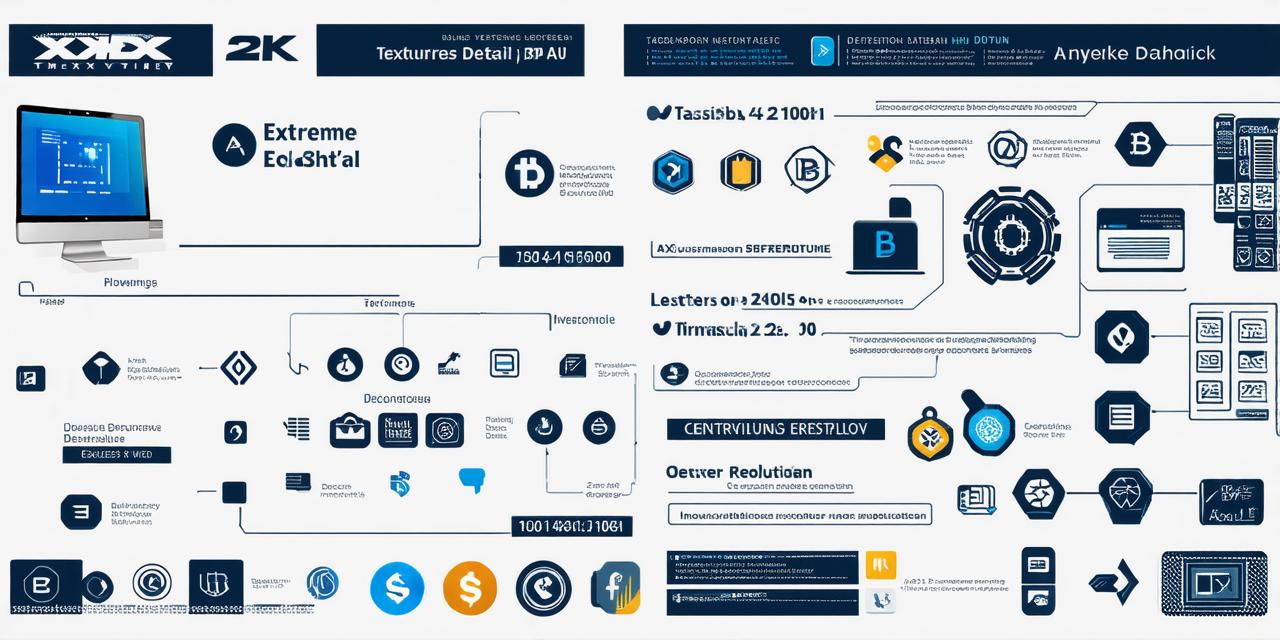As the world becomes increasingly digital, the need for secure and efficient ways to store and manage data is more important than ever. Blockchain technology offers a unique solution to these challenges, providing developers with new tools and opportunities to create applications that are transparent, secure, and decentralized. In this article, we will explore why blockchain technology matters for developers, using case studies, expert opinions, and real-life examples to illustrate its potential.
Transparency and Immutability
One of the key benefits of blockchain technology is its ability to provide transparency and immutability in transactions. This means that once data is recorded on the blockchain, it cannot be altered or deleted, providing a secure and trustworthy way to store and manage information. For developers, this can mean creating applications that are more secure and less prone to hacking or fraud.
For example, take the Bitcoin cryptocurrency, which is built on a blockchain network. Transactions on the Bitcoin network are transparent and immutable, meaning that anyone can view all transactions and verify their authenticity. This provides a level of security that traditional financial systems cannot match, making Bitcoin a popular choice for those looking to transfer funds securely online.
Decentralization and Smart Contracts
Blockchain technology is decentralized, meaning that there is no central authority controlling the network. Instead, transactions are verified by nodes on the network, which ensures that the system is secure and resistant to tampering. This decentralization also allows for the creation of smart contracts, self-executing agreements that can be programmed to automatically carry out specific tasks when certain conditions are met.
For developers, this means creating applications that can be run autonomously without the need for intermediaries. Smart contracts can be used in a variety of industries, from finance to supply chain management, to streamline processes and reduce costs. For example, a smart contract could automatically release payment when a product is delivered on time, or it could trigger a penalty for late delivery.

Traceability and Accountability
Blockchain technology provides traceability and accountability in transactions, meaning that every transaction can be traced back to its origin and verified for authenticity. This is particularly useful in industries where transparency and accountability are crucial, such as food safety or pharmaceuticals. For developers, this means creating applications that can track products from their point of origin to their final destination, ensuring that they meet quality standards and regulations.
For example, the food industry has already started using blockchain technology to track the origin of ingredients and verify their authenticity. This allows for greater transparency in the supply chain, as consumers can trace the source of their food and ensure that it meets their dietary needs and safety requirements.
Security and Privacy
Blockchain technology provides a high level of security and privacy for users, as transactions are encrypted and stored on a decentralized network. This makes it difficult for hackers to access or alter data, providing a level of protection that traditional systems cannot match. For developers, this means creating applications that can be accessed securely and protect user data from cyber threats.
For example, take the privacy-focused cryptocurrency Monero, which uses a unique encryption method to ensure the anonymity of transactions. Monero provides users with greater privacy than traditional cryptocurrencies, as transactions cannot be traced back to specific individuals or organizations. This makes it a popular choice for those looking to protect their financial information from prying eyes.
Real-World Examples
Many companies are already using blockchain technology to improve their operations and create new products and services. For example, Walmart has implemented a blockchain-based system to track the origin of food products in its supply chain, allowing for greater transparency and accountability. This has helped the company reduce waste and improve product quality, while also providing consumers with more information about where their food comes from.
Another example is IBM’s Food Trust, a blockchain-based system that connects farmers, retailers, and distributors to create a secure and transparent supply chain for food products. This allows for better traceability of products from farm to table, improving food safety and reducing waste.
Expert Opinions
Many experts in the tech industry believe that blockchain technology will have a major impact on the way we store and manage data.
